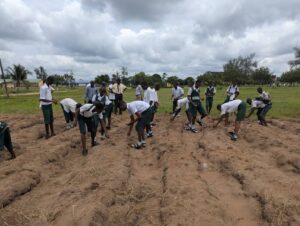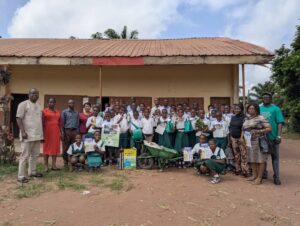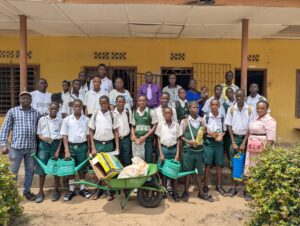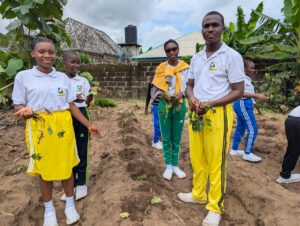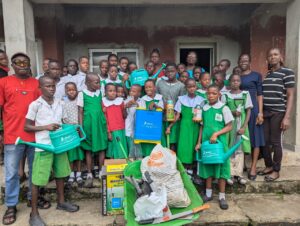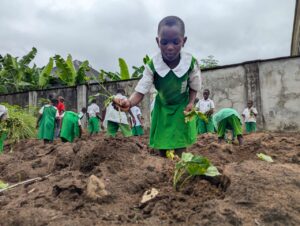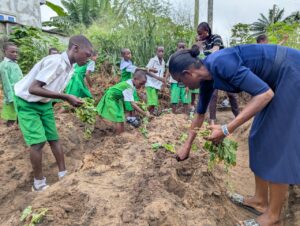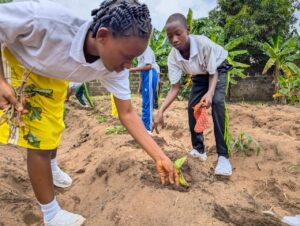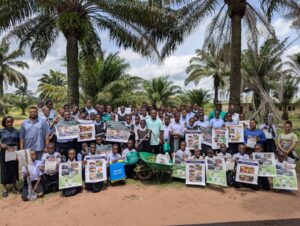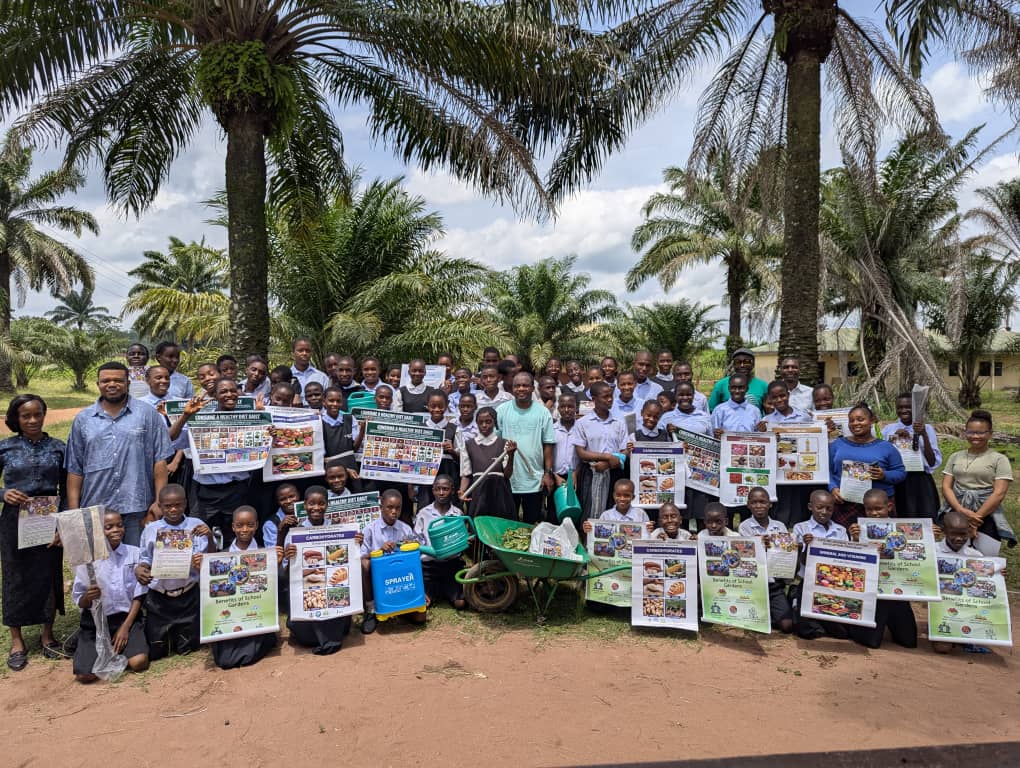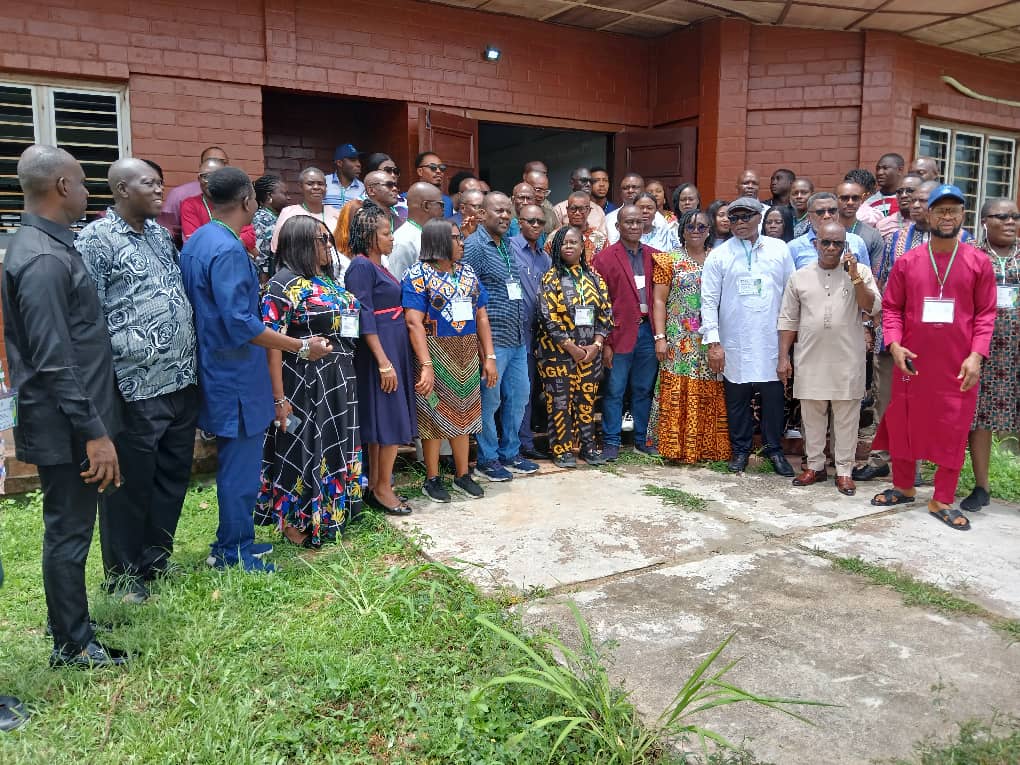To ensure that food security among our children in the school environment is enhanced, LIFE-ND implemented School Agriculture Programme (particularly the establishment of young farmers/good nutrition promoters’ clubs and school gardens) in five selected schools in Delta state. SAP is a component of school feeding service as contained in the National School Health Programme (HSHP) and its aim is to instill farming values and attitudes among students while at the same time contributing to national food and nutrition security. It is a nutrition sensitive agricultural intervention geared towards enhancement of immediate and long-term food security via the provision of diverse ready to eat fruits and vegetables while the students are in the schools.
The LIFE-ND project, Delta State started this activity by paying awareness/advocacy visit to the selected school authorities and students’ representatives. The aim of the visit was to create awareness on the importance of young farmer/good nutrition promoters’ clubs and school gardens to the students and the school authorities and also to seek for their partnership. Through this activity, the mandate of the school authorities to provide lands for the school garden establishment, ensuring water availability especially during off-season planting, security of the garden when established, and in making sure that the club members were given continuing agricultural and nutrition education were secured.
Immediately after the awareness/advocacy visit to the five selected schools
, the club members were formed and trained on setting up of school gardens and importance of healthy nutrition for all ages. Through this training, agricultural skills learnt by the students would stay with them for their whole lives and the skills would be put into practice both in the school gardens and outside the school environment. The needed agricultural practice and knowledge grasped at tender age by the club members will make them see fortune through agribusiness at young age, and by this they will not abandon this precious sector for illicit money-making venture or for menial white-collar jobs in the future and we will have a generation of youths who will love and treasure Agriculture—and who will hopefully also consider agriculture to be the best thing ever. The knowledge on healthy nutrition garnered by the students would remain and become valuable in their daily lives, contributing to their improved nutritional status and that of their family members. This was also a laudable opportunity that LIFE-ND used to create awareness about biofortified crops (provitamin A maize, potatoes and cassava) and its roles in preventing micronutrient deficiencies as some community members, teachers and school authorities partook in the training.
The climax of the activity which came after the training was the provision of inputs to support the establishment of school gardens in the selected schools. LIFE-ND project funded the land preparation followed by the provision of farming equipment (shovels, machetes, hoes, watering cans, knapsack sprayers, barrows, insecticides and herbicides, manures, etc.) and planting materials (vines of orange fleshed sweet potatoes, provitamin A maize, amaranthus seeds, improved varieties of okro, watermelon and cucumber seeds).The young farmers/good nutrition promoters’ clubs had firsthand broad experience and detailed practical knowledge and skill on crop development and farm management. Through the guidance of the extension agents, the various crops were planted by the club members and various ways of garden managements were explained to them. The gardens were handed over to the club members to ensure their proper maintenance and positive results. The produce from the gardens would enhance their nutritional needs since one of the cardinal aims is for the students to consume what they produce even when they are in the schools. The club members are to be supervised by their various agricultural teachers, while the extension agents attached to each of the schools and LIFE-ND staff led by Nutrition Mainstreaming Specialist will be carrying out periodic monitoring and evaluation of the activeness of the club members and the condition of the gardens.
The five (5) schools selected schools are:
- Mater Dei College, Ashaka, Ndokwa East LGA.
- Utagba-Ogbe Grammar School, Ndokwa West LGA.
- Saint Charles College, Abavo, Ika South LGA.
- Owanta Grammar School, Ika North East LGA.
- Adane-Okpe Model Primary School, Orerokpe, Okpe LGA.
